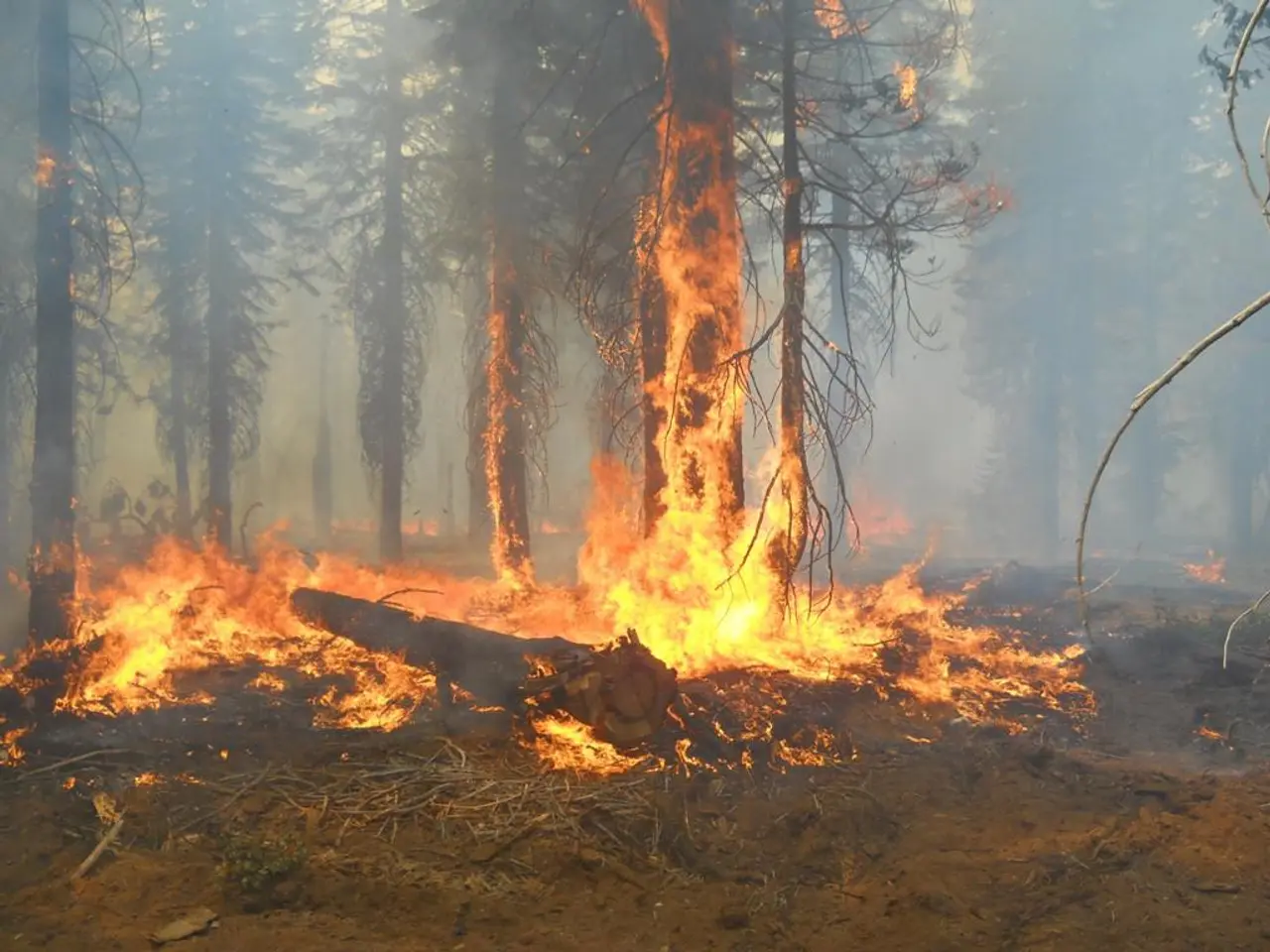Evacuation conclusion in Newfoundland, concerns of wildfires increase in Nova Scotia
Wildfires Rage Across Maritime Provinces and Newfoundland and Labrador
A series of wildfires are currently ravaging parts of Newfoundland and Labrador, Nova Scotia, and New Brunswick, causing evacuations, destruction, and significant concern for authorities.
Newfoundland and Labrador
The most pressing issue in Newfoundland and Labrador is the Kingston fire, which has grown significantly, reaching over 5,200 hectares, approximately half the size of Vancouver. The fire remains out of control and has caused evacuations of around 3,000 people, destroyed homes and buildings, and continues to threaten nearby communities like Ochre Pit Cove. Firefighting efforts include helicopters and crews working tirelessly in difficult dry conditions.
Another major wildfire in the region is the Martin Lake fire, estimated to cover 1,770 hectares. Firefighters have constructed fire breaks around Martin Lake and other strategic points to prevent spread, with air support from Quebec water bombers assisting suppression efforts.
The Conception Bay North wildfire is also out of control and massive, estimated at 10,708 hectares. Several communities have evacuation orders due to this fire.
The Paddy’s Pond fire near the Town of Paradise is currently being held at 318 hectares.
New Brunswick
In New Brunswick, the Old Field fire is approximately 1,402 hectares and is being held.
Nova Scotia
In Nova Scotia, a fire in the Annapolis Valley has prompted authorities to declare a state of emergency. The fire near Long Lake has nearly doubled in size since Friday, reaching approximately eight square kilometers. The fire burning in Nova Scotia is about 135 kilometers northwest of Halifax. However, there is no specific recent information on fires in Nova Scotia in the data available.
Potential New Fires
Intense dry weather conditions complicate suppression efforts and increase the risk for new blazes, but no confirmed new fires have been explicitly reported in these sources.
Accidents and Evacuations
The Long Lake wildfire fighting team lost a helicopter in an accident on Friday afternoon. The cause of the accident is under investigation by Transport Canada. Authorities issued a preventive evacuation alert for the town of Freshwater, Newfoundland, advising residents to be prepared to flee if the Kingston fire approached. In northern New Brunswick, a forest fire north of Miramichi prompted authorities to ask residents of Lavillette to prepare for possible evacuation on short notice on Friday evening.
Weather Conditions
Much of Atlantic Canada is grappling with near-drought conditions and oppressive heat. No rain was expected in the County of Annapolis until Monday, but heavy showers fell over much of Newfoundland on Friday. However, the province's largest fire, known as the Kingston fire, remained at approximately 95 square kilometers overnight. The evacuation alert for thousands of residents near Newfoundland and Labrador's largest city ended on Saturday. The evacuation alert for approximately 20,000 people in St. John's, Newfoundland, and surrounding areas was lifted on Saturday afternoon.
Conclusion
The wildfire activity in the Maritime provinces and Newfoundland and Labrador is above normal for this time of year, with large out-of-control fires causing significant damage and evacuation. Firefighting efforts involve ground crews supported by aerial water bombers from provincial cooperation. The situation remains serious, and authorities fear that other fires may break out in the coming days following the thunderstorms that swept through the province on Thursday night.
- Environmental Science and climate-change discussions are crucial when analyzing the recent wildfires in the Maritime provinces and Newfoundland and Labrador, as the dry, oppressive weather conditions are indicative of broader trends.
- French-speaking Quebec water bombers have been providing assistance in the suppression of the Martin Lake fire in Newfoundland and Labrador, demonstrating regional cooperation in addressing environmental emergencies.
- Weather-forecasting is essential for assessing the risk of new fires in the Maritime provinces, as the potential for thunderstorms could lead to further wildfire activity.








